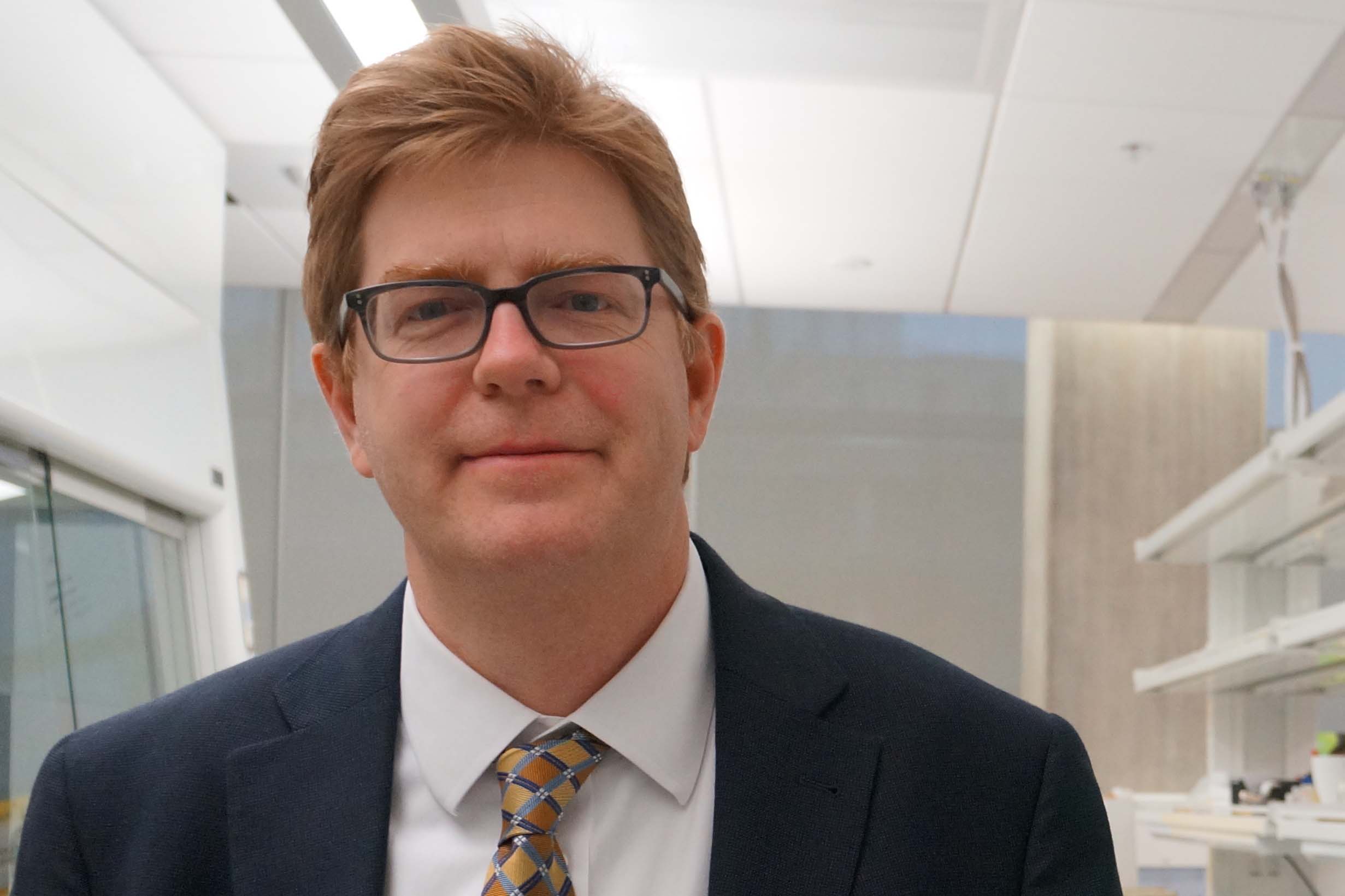Christopher Cahill, chair of the Columbian College of Arts and Sciences’ (CCAS) Chemistry Department and a leader in inorganic and materials chemistry, was elected to the 2021 class of American Association for the Advancement of Science (AAAS) Fellows, among the most distinct honors within the scientific community.
AAAS is the world’s largest general scientific society and publisher of the Science family of journals.
“To be included in this august company of researchers and to have my commitment to science recognized on this level is truly flattering and rewarding,” said Cahill, a professor of chemistry and international affairs.
Cahill, who came to George Washington University in 2000 and has led the chemistry department since 2019, joins a distinguished roster of 564 scientists, engineers and innovators from around the world. The 2021 electees span 24 scientific disciplines, with accomplishments ranging from developing vaccine technology and leading breakthroughs in climate science to pioneering artificial intelligence and uncovering insights into the formation of breast cancer.
“AAAS is proud to honor these individuals who represent the kind of forward thinking the scientific enterprise needs, while also inspiring hope for what can be achieved in the future,” said Sudip S. Parikh, AAAS CEO and executive publisher of the Science journals.
A lifetime honor, GW has boasted numerous past AAAS electees including Physics Department Chair Chryssa Kouveliotou, University Professor of Human Origins Bernard Wood and GW President Mark S. Wrighton.
“It speaks to the quality of research and scholarship that we’re doing [at GW] that so many of my colleagues have shared this validation and recognition of their accomplishments,” Cahill said.
The AAAS Fellows program stretches back to 1874 and have included civil rights icon and sociologist W. E. B. Du Bois, astronaut Ellen Ochoa and Nobel-winning physicist Steven Chu.
Cahill’s research revolves around, as he puts it, “weird elements at the bottom of the periodic table.” With more than 15 years of funding from the U.S. Department of Energy, Cahill and his student researchers have focused on the less-studied actinide elements, many of which are man-made and are key components of nuclear weapons and nuclear energy. “These elements are certainly less common, but it is critical to understand their properties and how we can harness them for applications from bioimaging to nuclear energy to cleaning up some of our past sins of weapons production,” he said.
During 2015-16, Cahill served as an American Institute of Physics Fellow within the U.S. State Department’s Office of Weapons of Mass Destruction Terrorism. The experience, which primarily involved analyzing the global nuclear landscape, brought a new dimension to his teaching and research, he said. “It helped redefine my perception of what a scientist’s contribution to society, our country and our planet can be.”
Cahill’s research has appeared in more than 150 publications including prestigious journals such as Inorganic Chemistry, the Journal of the American Chemical Society and Angewandte Chemie.
Among his influences, Cahill singled out Chemistry Professor Emeritus Michael King, who chaired the CCAS Department of Chemistry for more than 20 years, as a “tireless and selfless leader.” He also credited his students for their role in advancing his AAAS-cited research. “This distinction would not be possible without the contributions and hard work of my grad students, post-docs, undergraduates and even high-schoolers I’ve worked with over the years,” he said. “This says as much about them!”


